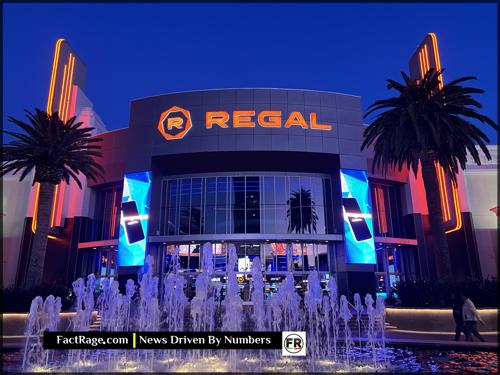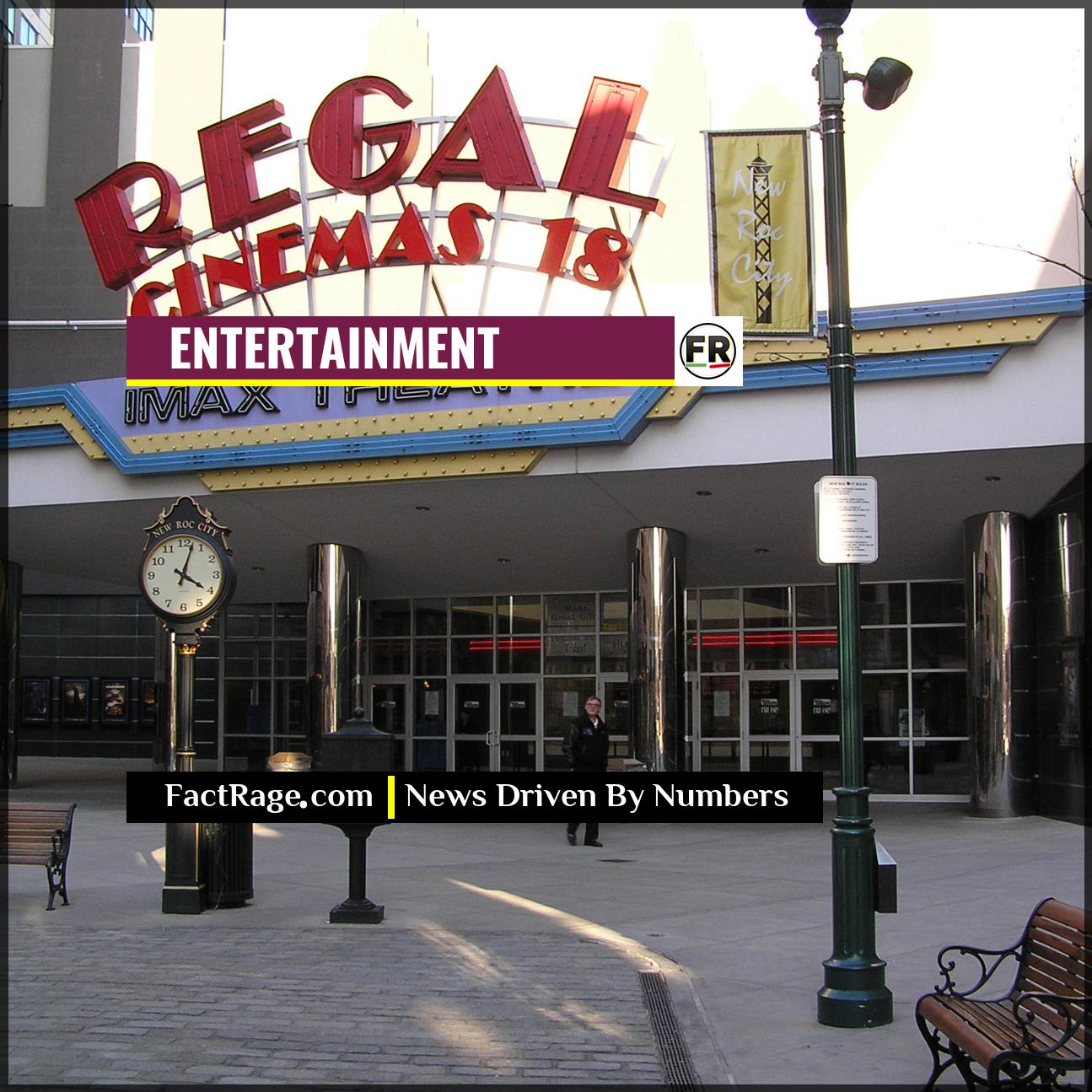NATIONWIDE – The future of Regal Theaters, the second-largest cinema chain in the United States, remains precarious as its parent company grapples with massive debt and the industry confronts a fundamental shift in audience behavior.
- Parent Company Debt – Regal’s UK-based parent company, Cineworld, emerged from Chapter 11 bankruptcy in 2023 but remains saddled with billions in debt, putting immense pressure on its operations.
- Shrinking Footprint – As part of its restructuring and cost-cutting measures, Cineworld has closed dozens of Regal cinema locations across the United States since 2023.
- Sluggish Box Office – The overall domestic box office has struggled to consistently reach pre-pandemic levels, with 2024 revenues pacing behind 2023’s modest recovery, creating a challenging environment for all exhibitors.
The flickering lights of the nation’s movie theaters tell a complex story of art, commerce, and changing habits. For Regal Theaters, that story has entered a critical chapter, forcing a reckoning with what the modern cinema experience is and whether it can compete in an on-demand world.
Beyond the Box Office Numbers
![]() On the surface, the story of Regal Theaters is about corporate debt and declining ticket sales. But look closer, and you’ll see a much bigger story about our changing social habits and what we truly value in a shared experience. This isn’t just a battle between the cinema and the streaming queue; it’s a defining moment for the future of communal entertainment. The financial turbulence of one chain is a reflection of a much deeper cultural shift.
On the surface, the story of Regal Theaters is about corporate debt and declining ticket sales. But look closer, and you’ll see a much bigger story about our changing social habits and what we truly value in a shared experience. This isn’t just a battle between the cinema and the streaming queue; it’s a defining moment for the future of communal entertainment. The financial turbulence of one chain is a reflection of a much deeper cultural shift.
What’s Behind Regal’s Financial Troubles?

The core of Regal’s current instability lies with its parent company, Cineworld Group. The British company’s aggressive expansion, funded by debt, culminated in the $3.6 billion acquisition of Regal in 2017. When the COVID-19 pandemic forced a global shutdown of theaters in 2020, Cineworld’s revenue vanished, but its debt obligations did not.
This financial pressure led Cineworld to file for Chapter 11 bankruptcy protection in the U.S. in September 2022. While the company officially exited bankruptcy in mid-2023 with a new ownership and management team, it did so by shedding assets and raising new capital, but a significant debt load remains. To satisfy creditors and streamline operations, the company has engaged in a continuous process of “optimizing” its theater portfolio, which has resulted in the permanent closure of numerous underperforming Regal locations. This leaves many communities with fewer, or in some cases, no local options for a traditional moviegoing experience.
Why Hasn’t the Box Office Bounced Back?
While individual films like Top Gun: Maverick and Avatar: The Way of Water have proven that audiences will still turn out for a cinematic event, the overall consistency is gone. The domestic box office, which regularly topped $11 billion annually before the pandemic, reached just over $9 billion in 2023. Projections for 2025 remain cautious, as a thinned-out release slate—a lingering effect of the 2023 Hollywood labor strikes—and changing consumer habits present major headwinds.
Several factors contribute to this lag. Theatrical windows, the exclusive period movies play in theaters, have shrunk dramatically. Many films now arrive on streaming services just 45 days or fewer after their theatrical debut, reducing the urgency for consumers to buy a ticket. Furthermore, the rising cost of tickets and concessions, coupled with the economic pressures of inflation, makes a family trip to the movies a significant expense compared to watching a film at home. This dynamic puts theater chains like Regal and its competitor AMC Entertainment in a difficult position: they must charge more to cover their own rising costs, potentially driving away more price-sensitive customers.
What Is the Future of the Movie Theater?
The existential question for Regal and the industry at large is how to adapt. The answer for many appears to be a focus on the “premium” experience. This includes investing in luxury seating, expanded food and beverage menus, and showcasing films in high-end formats like IMAX and 4D. The strategy is to reframe the cinema not just as a place to see a movie, but as a premium social destination worth leaving the house—and the streaming queue—for.
However, this strategy requires significant capital investment, a challenge for a company like Cineworld still managing its debt. It also risks alienating customers who prefer a more traditional, affordable movie ticket. The industry is also exploring alternative content, such as broadcasting live concerts, sporting events, and opera to fill seats during off-peak times. The success of features like Taylor Swift: The Eras Tour concert film demonstrates a public appetite for these communal viewing events.
Ultimately, the survival of chains like Regal may depend on their ability to redefine their role in the entertainment ecosystem. The challenge is not just to compete with streaming, but to offer an experience so compelling that it becomes an essential part of cultural life once again.
The Credits Aren’t Rolling Yet
![]() Regal’s fight for survival is more than a line item on a corporate balance sheet; it’s a real-time test case for the future of communal entertainment. The story is no longer a simple duel between the living room couch and the cinema seat, but a more complex narrative about value, experience, and what it takes to capture our attention in a crowded media landscape. The long-term viability of the movie theater hinges not just on paying down debt, but on proving it offers something essential that a streaming subscription simply cannot replicate. The final act for the silver screen has yet to be written.
Regal’s fight for survival is more than a line item on a corporate balance sheet; it’s a real-time test case for the future of communal entertainment. The story is no longer a simple duel between the living room couch and the cinema seat, but a more complex narrative about value, experience, and what it takes to capture our attention in a crowded media landscape. The long-term viability of the movie theater hinges not just on paying down debt, but on proving it offers something essential that a streaming subscription simply cannot replicate. The final act for the silver screen has yet to be written.














